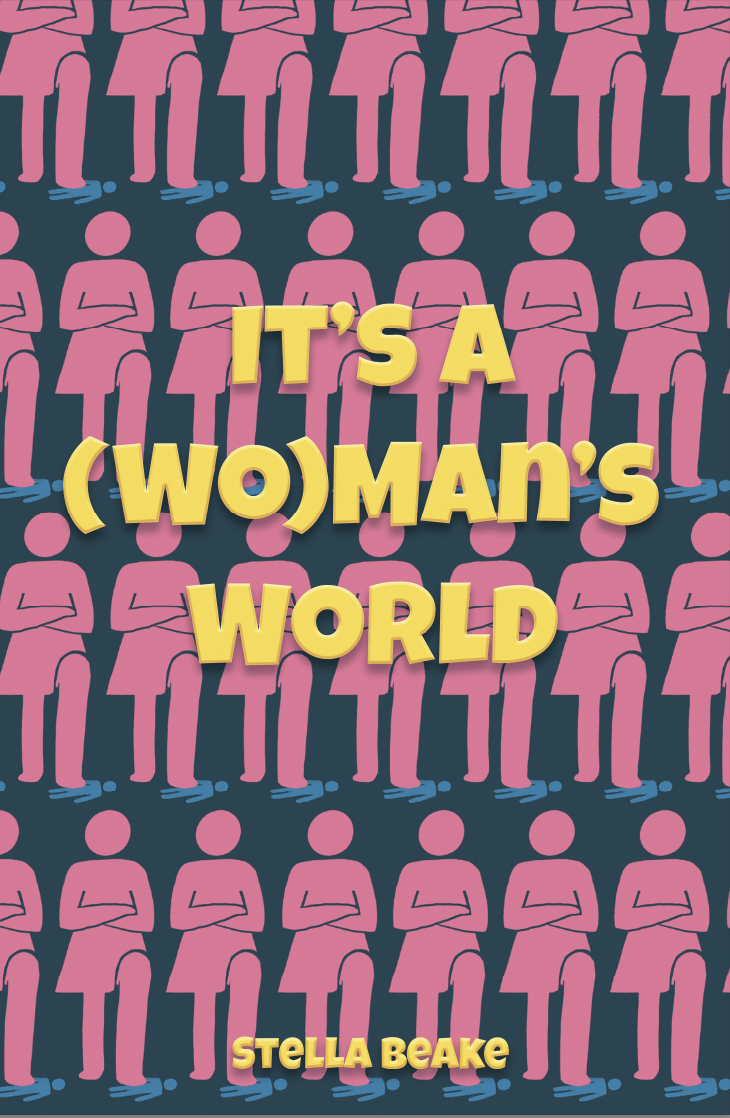An Interview With… Stella Beake
Today on the blog we speak to indie author Stella Beake, author of It’s a (Wo)man’s World.
Stella Beake is an ex-humanitarian aid worker, now living a more gentle and settled life back in the UK. Working for years in the area of gender equality, girl's education, and preventing gender-based violence against women and girls has given Stella a passion for women's rights and a vision of a more equal society.
What is the name of your latest book?
It's a (Wo)man's World
Can you describe this book in 5 sentences (or less)?
It’s a (Wo)man’s World is a fictional future (dystopia or utopia? – for the reader to decide) in which women are in total power. The world has changed for the better – wars are obsolete, inequality (among women, at least) has been addressed and wealth redistributed, and the environment is respected, with the harm caused by climate change reversed. But the world is not such a great place for men and boys anymore. Within this world, both women and men fight in secret for male equality. The story follows Emmy, and her lodger, Marcus, in their journey within this fight.
What does your writing process look like?
The catalyst for It’s a (Wo)man’s World was the overturning of Roe vs Wade in the US in 2022. It provoked such a fury within me, that a room full of white men could so blatantly just roll back women’s rights. The first few chapters were written in a blur of anger and outrage – mixed a little bit with a sense of sheer frustration and futility at the world within which we live. And actually, that process of writing the first few chapters did help calm the severity of my anger.
The book was then left for a few months, and when I came back to it and re-read the first few chapters, I realised I wanted to continue with the story and see where it went. I then continued writing as a hobby. The process consisted of writing a chapter or two, then going back to the beginning and re-reading, revising, and editing as I went along. I plotted out characters and timelines, but didn’t really plot out the whole story – it almost took on a life of its own, and even I was a little surprised at some of the twists that came about!
Whether it be music, books, films, the world, or other, where do you get your writing inspiration?
So as I mentioned above, It’s a (Wo)man’s World was provoked by a particular event, the overturning of Roe vs Wade, and so was somewhat born out of very negative feelings of anger and frustration. My other book, Becoming Mzungu, was the exact opposite – that is a story of a young lady who goes overseas to do aid work for the first time, and that was born out of lots of positive feelings, and a desire to write down some of the really lovely experiences I’ve had over the years. So really, my writing inspiration to date has come from both personal experiences, and the political and social world around us.
What was the toughest part of writing this book for you?
Oh, that’s a hard question! I guess the ending of It’s a (Wo)man’s World was the toughest part. I think I really wanted to speak to the idea of inequality, regardless of who is the oppressor and who is the oppressed, but I also wanted to keep to the strongly feminist principles which have governed my whole adult life and my work, about which I am very passionate. So, without wanting to give any spoilers for the ending, I was a bit torn as to which way to go with it. But I think I am quite happy with how it turned out.
What advice would you give to someone who is thinking of writing a book?
I would say, go for it! I’ve found writing to be both pleasurable and cathartic. My first book, Becoming Mzungu, well, as I said above, I wrote this almost as a form of a diary. It was fun creating characters and situations, some of which were based on reality and some of which are complete fiction. But it was an enjoyable process and I originally had no desire to even publish that book, I wrote it simply for my own enjoyment. It’s a (Wo)man’s World had its origins in a darker place, but it was quite therapeutic to express my frustration through the medium of story-telling. But I also think it’s important to find a topic or a story that you are passionate about telling, because when that happens, the words flow quite easily.
What are you working on currently?
I have recently started a sequel to my book, Becoming Mzungu, which I’m enjoying writing. It’s quite nice to go back to a story that brings up pleasant happy memories.

